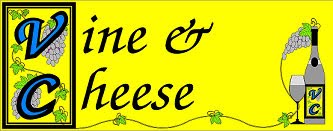We in the industry have casually talked about global warming for twenty years. Gallows humor may aptly describe the banter. Envy may also be in there somewhere knowing that some of the most expensive real estate in the world is planted in vineyards. Going forward, owners of that cultivated land in Napa, Tuscany, Burgundy, or any of a number of other wine appellations may not have the treasure trove they once did. By 2050 all of these meccas may be too warm to produce what made them famous in the first place.
Moreover the legally controlled appellation system Europe created to protect those historically important wine production regions, the system that worked so well for a hundred years, now seems to be the opposite of what it once was. Whereas it once guaranteed quality, with temperatures rising, in time Chianti will be ordinary at best. If it's your fav, buy it now. Inevitably, Europe will have to abandon these soon-to-be-meaningless appellations in favor of varietal labeling or something else.
At the heart of the French appellation system is the idea of terroir. Terroir is the "universe" of the grape in the vineyard including: weather, soil, topography, and the grape variety, itself. In theory the right grape variety planted in the right setting with competent care will produce a consistently premium product for as long as the vines are in the ground...and vines last a l-o-n-g time. If one of the terroir variables (such as heat) changes though, all bets are off.
Heat in the central valley of California is one of several factors that causes Cabernet Sauvignon grapes to fetch one-fifteenth of the price of Napa Cabernet. Other factors are of course at work besides the heat, but the heat amounts to a mere five degree difference between the two places, so if Napa heat rises five degrees, does it turn into Fresno? It may be that the high dollar wines like Napa Cabernet and others will take the biggest hit from global warming.
A recurrent topic here in the blog is consolidation in the wine industry and the movement from estate produced wine to bulk production on a mass scale. With global warming in mind, that movement now seems prescient. If the climate is going to change the product anyway, why not recreate your formerly estate-sourced wine using fruit from cooler climes? You could still market it as Chateau XYZ with the public being none the wiser and thoroughly ambivalent toward estate-sourcing anyway.
Monday, May 20, 2013
Subscribe to:
Post Comments (Atom)




No comments:
Post a Comment